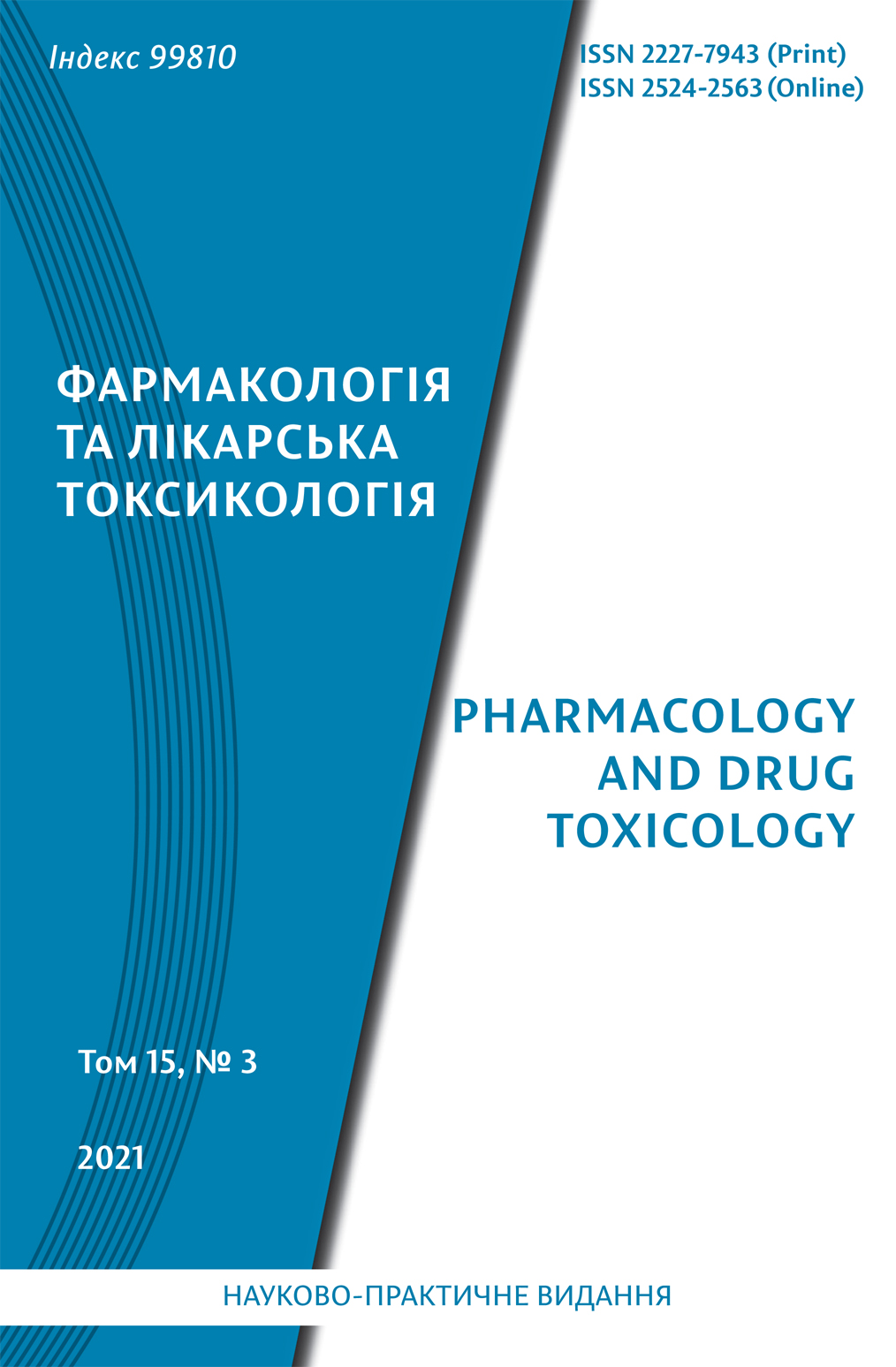Abstract
The problem of development of effective and safe drugs with anti-inflammatory and analgesic effects remains a priority in world pharmacology. By bioisosteric modification of the oxycam’ molecule, a number of new biologically active compounds were obtained, and a leader compound was established. In this
work, a study of the anti-inflammatory effect of a new original derivative of benzothiazine-3-carboxamide by the dynamics of hematological and biochemical parameters in rats with autoimmune inflammatory process (adjuvant arthritis) was performed.
The systemic inflammatory process was simulated by the administration of Freund's adjuvant. A new compound and reference drug (meloxicam) were administrated per os from 14 to 28 days in doses corresponding to their ED50 of anti-inflammatory activity.
It was found that N-(trifluoromethylphenyl)-4-hydroxy-2,2-dioxo-1H-2λ6,1-benzothiazine-3-carboxamide (compound B) has a pronounced anti-inflammatory effect in the of systemic inflammation in rats, which was manifested by preservation body weight, less pronounced manifestation of the inflammatory
process in the peripheral blood, as well as more potent inhibition of the initiation of biochemical markers of inflammation (IL-1β, PgH synthase, nitrogen monoxide and hydrogen sulfide systems). In terms of the severity of the anti-inflammatory effect, the benzothiazine-3-carboxamide derivative is comparable to meloxicam, and in terms of its effect on the system of nitrogen monoxide and hydrogen sulfide, it is superior to the reference drug.
The data obtained prove that a deep understanding of the mechanisms of NSAIDs action and their influence on pathobiochemical changes in rheumatic and other conditions accompanied by inflammatory and pain syndroms is crucial for their proper use, taking into account the serious side effects.
